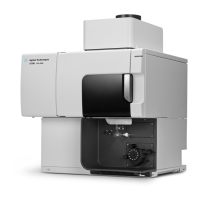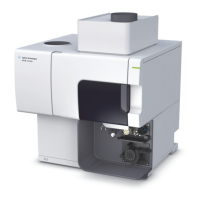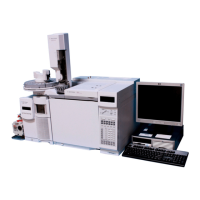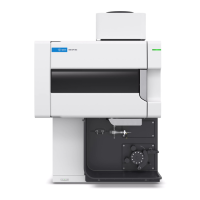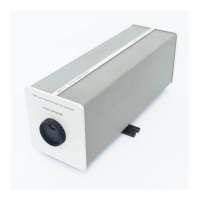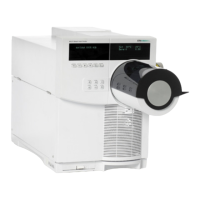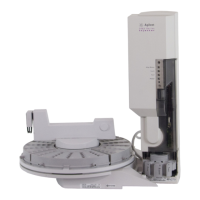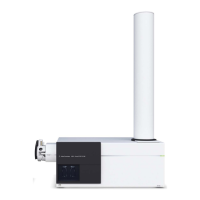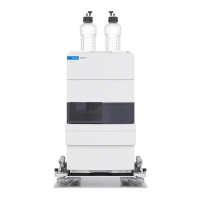168 Agilent Restricted Agilent 5110/5100 ICP-OES Service Manual
5 Troubleshooting
Pump/Pump Tubing
Pump/Pump Tubing
To check the operation of the pump and pump tubing, dip the sample tubing in and out of the
solution and watch the sample uptake along the capillary. If the liquid flow path is not smooth,
or no liquid is taken up it could be one or more of the following factors:
• Pump tubing that is crimped or bent does not give a smooth flow rate. Re-adjust the pump
tubing over the rollers to straighten out any kinks.
• A pump speed which is too low causes strong pulsations or spurting sample flow. Adjust the
flow rate until the sample uptake is smooth.
• Pump tubing that is flat or has lost its elasticity should be replaced with new tubing.
If a low pump speed is required to restrict the uptake rate (for example, for some organic
samples) select a smaller ID pump tubing to avoid strong pulsations yet still maintain a low
uptake rate.
There will be some degree of pulsing visible which is acceptable.
Check all tubing and connections in the sample introduction system for air leaks.
Instrument Calibration
If the instrument is reading on the edge of a peak (due to an instrument calibration error) the
signal may be noisy. If this occurs perform an instrument calibration.
Running Aqueous Analysis after Non-Aqueous Analysis
When performing an aqueous analysis after running non-aqueous organic samples (or vice
versa), a mutually miscible solvent must be used to ensure a thorough washout.
Traces of organic samples can remain in the Spraychamber or torch. Rinse and if necessary,
clean the Spraychamber or torch when switching from organics to aqueous samples.
Partially Soluble Salts
Salts which are only sparingly soluble may partially precipitate when nebulized, causing a noisy
signal. Converting the salt to a more soluble form may help reduce the noise. For example; add
boric acid to fluoride solutions to create the more soluble borofluorides.

